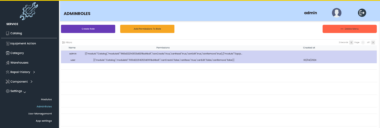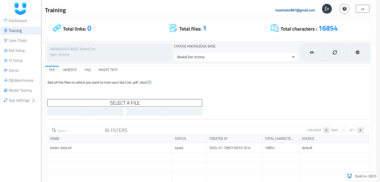Frequently Asked Questions about the Notion API MCP
Q: What is the Notion API MCP? A: The Notion API MCP (Model Context Protocol) is a Python-based server that allows AI models, like Claude, to interact with Notion’s API. This enables AI to manage to-dos, databases, and content within Notion seamlessly.
Q: What are the key features of the Notion API MCP? A: Key features include Todo Management (creating, updating, and tracking tasks), Database Operations (managing Notion databases), Content Organization (structuring content with Markdown), and Real-time Integration (direct interaction with Notion’s workspace).
Q: How do I install the Notion API MCP?
A: You can install it either manually using git clone and uv pip install, or automatically via Smithery using the npx command.
Q: What is Smithery, and how does it relate to the Notion API MCP? A: Smithery is a platform that simplifies the installation and management of MCP servers. You can use Smithery to quickly install the Notion API MCP for Claude Desktop.
Q: Do I need a Notion API key to use the Notion API MCP? A: Yes, you need a Notion API key. You can create one by going to notion.so/my-integrations and creating a new integration.
Q: How do I get the Notion API key and page/database ID? A: You can obtain the Notion API key from your Notion integration settings. The page ID can be found in the URL of a Notion page after the last slash, and the database ID can be found in the URL of a Notion database.
Q: How do I configure Claude Desktop to use the Notion API MCP?
A: You need to add the Notion API MCP configuration to Claude Desktop’s config file (~/Library/Application Support/Claude/claude_desktop_config.json), including the command, arguments, and environment variables.
Q: Does the Notion API MCP support both .env files and environment variables?
A: While the server supports both, Claude Desktop specifically requires configuration in its config file to use the MCP. The .env file is primarily for local development and testing.
Q: What if I want to create new databases instead of using existing ones?
A: You can specify a NOTION_PARENT_PAGE_ID in your configuration, which will allow the MCP to create new databases under that page.
Q: Where can I find more detailed documentation about the Notion API MCP?
A: Detailed documentation can be found in the docs directory of the project repository, including Configuration Details, Features, Architecture, API Reference, and more.
Q: What are the planned future developments for the Notion API MCP? A: Planned enhancements include performance optimization, advanced features like multi-workspace support and batch operations, improved developer experience with interactive API documentation, and testing enhancements such as performance benchmarks.
Q: How can the UBOS platform enhance the use of the Notion API MCP? A: UBOS is a full-stack AI Agent Development Platform that allows you to orchestrate AI Agents, connect them with your enterprise data, build custom AI Agents, and create Multi-Agent Systems, complementing the Notion API MCP by providing a comprehensive environment for AI development and deployment.
Notion Todo and Content Manager
Project Details
- liaoweiqiang-dao42/notion-api-mcp
- MIT License
- Last Updated: 4/29/2025
Recomended MCP Servers
A MCP server providing realistic browser-like HTTP request capabilities with accurate TLS/JA3/JA4 fingerprints for bypassing anti-bot measures. It...
Serverless PayPal MCP integration on Cloudflare Workers. Handles API requests, auth, and secure payments with low latency via...
AutoGPT is the vision of accessible AI for everyone, to use and to build on. Our mission is...


A Model Context Protocol server that executes commands in the current iTerm session - useful for REPL and...
Playwright MCP server
MCP server for querying the Shodan API
This is a Model Context Protocol (MCP) server that provides professional cycling data from FirstCycling. It allows you...

Gon的MCP工具

bluetooth-mcp-server for Claude AI
 From vibe coding to vibe deployment. UBOS MCP turns ideas into infra with one message.
From vibe coding to vibe deployment. UBOS MCP turns ideas into infra with one message.





